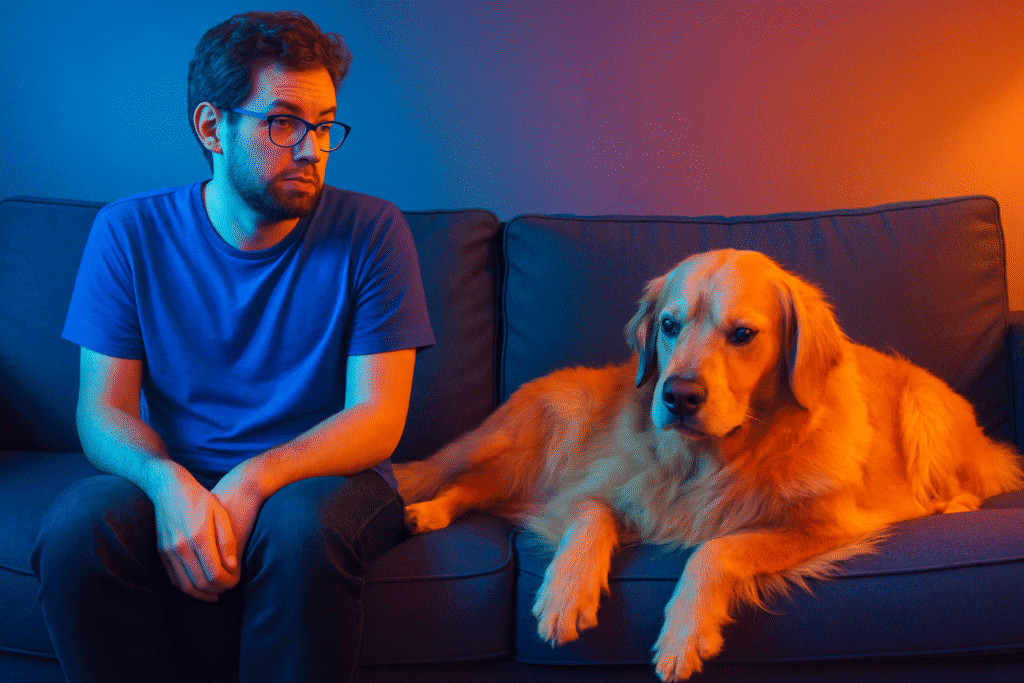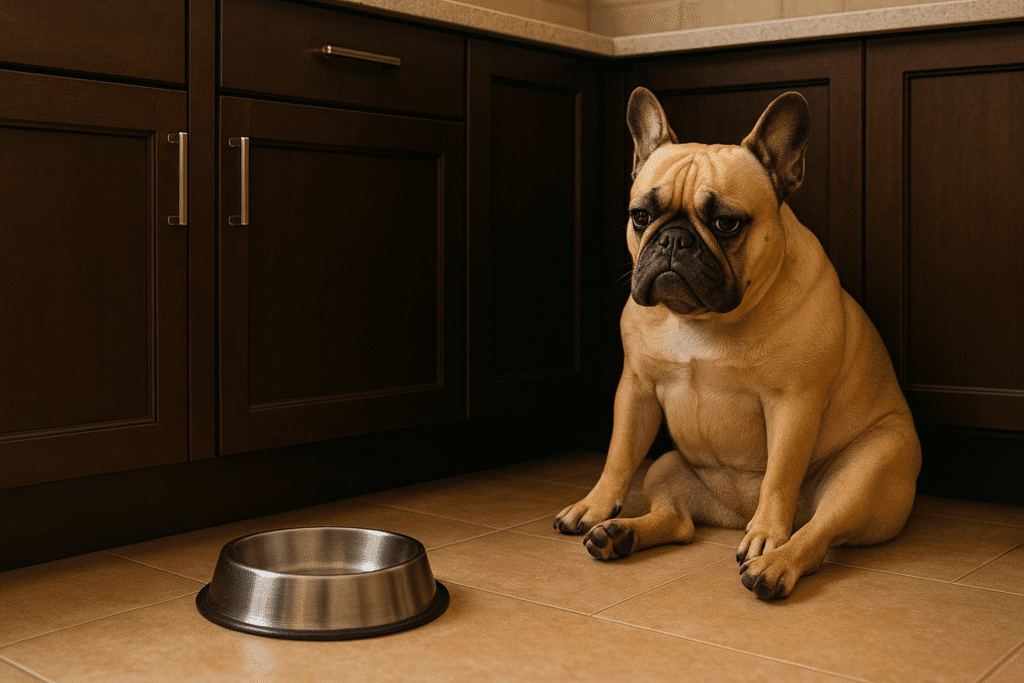The Dramatic Dog Sigh: What Your Pup Is Really Saying When They Sigh at You
It’s one of the quietest, yet most powerful, sounds your dog can make. You’ve just explained, for the fifth time, that the mail carrier is not, in fact, a mortal enemy who must be barked into oblivion. Your dog looks at you, looks at the door, and then lets out a long, slow, audible exhale. *Hhhhhhhhhh.* It’s a sound heavy with meaning, rich with emotion, and dripping with judgment. It’s the dramatic sigh, and it’s one of the most human-like forms of communication in your dog’s extensive vocabulary.
But what are they actually saying? When your pup lets out that puff of air, are they genuinely disappointed in your life choices? Are they blissfully content? Or are they just resetting their respiratory system? The answer, fascinatingly, is all of the above. The humble sigh is a complex piece of dog communication, ranging from a simple physiological function to a sophisticated expression of their emotional state. Let’s decode the exhales and finally figure out what our pups are really thinking when they sigh at us.
The Science Behind the Sigh
Before we assign complex emotions to every puff of air, it’s worth noting that sighing has a fundamental, biological purpose. In mammals, including both humans and dogs, a sigh functions as a vital respiratory reset. Throughout the day, some of the tiny air sacs in the lungs (called alveoli) can collapse. A sigh is essentially a deep breath, followed by a long exhale, that helps pop these little sacs back open, improving lung function and oxygen exchange. It’s an unconscious reflex that keeps the respiratory system running smoothly.
But dogs, being the emotionally intelligent creatures they are, have learned to harness this biological function for communication. Just as they use barks, whines, and body language to convey their needs, they use sighs to broadcast their state of mind. The key to understanding them is to look at the context.
A Dictionary of Dog Sighs: Decoding the Exhale
A dog’s sigh is rarely just a sigh. It’s a sentence, and your job as their human is to be a translator. Here are the most common meanings, from the blissful to the bummed out.
The “All Is Well” Sigh of Contentment
This is the best kind of sigh. Your dog has just had a good meal, a long walk, and is now curling up in their favorite bed or snuggling next to you on the couch. They nuzzle in, perhaps turning in a circle a few times, and then collapse into a comfy position, letting out a long, soft sigh as their eyes gently close. This is the sigh of pure contentment. It signals that they feel safe, relaxed, and happy. Their body is loose, their face is soft, and their emotional state is one of peace. It’s their way of saying, “Ah, this is the life.”
The “My Life is Ruin” Sigh of Disappointment
This sigh is the polar opposite of contentment and the cornerstone of the petty pup persona. It occurs when your dog’s hopes and dreams have been crushed. You put the leash away after a walk that was clearly too short. You ate the last bite of your sandwich without sharing. You told them to “leave it” when they found a particularly interesting piece of trash on the sidewalk. They will often stare at you, then dramatically slump to the floor and issue a deep, sorrowful sigh that is designed to make you feel like a monster. This sigh means, “My disappointment is immeasurable, and my day is ruined.”
The “Is This All There Is?” Sigh of Boredom
It’s a quiet afternoon. You’re working or reading, and nothing exciting is happening. Your dog, who has been sleeping for hours, wakes up and realizes the fun-o-meter is at zero. They might stare at you intently for a few minutes, and when that doesn’t work, they will let out a sigh that is a mixture of boredom and impatience. It’s often followed by another pointed stare, or perhaps a single, demanding bark. This sigh is a direct question: “Are you ever going to do anything interesting again?”
The “That’s Quite Enough” Sigh of Resolution
Sometimes a sigh is a way for a dog to signal the end of an interaction. Perhaps you’ve been in a long training session and their brain is full. Or maybe you’ve been playing an intense game of tug-of-war. When they’re ready to be done, they might disengage, lie down, and let out a sigh. This is their way of punctuating the end of the activity. It’s a signal of closure, like a human saying, “Alright, I’m done for now.” It’s a polite way of ending the conversation.
When to Pay Attention: Is a Sigh Ever a Bad Sign?
For the overwhelming majority of the time, a dog’s sigh is a completely normal and healthy form of expression. It’s part of the rich tapestry of dog emotions. However, if you notice a sudden and dramatic increase in sighing, especially when it’s paired with other symptoms, it’s worth paying closer attention.
It’s important to distinguish a sigh from a groan, moan, or wheeze. A sigh is mostly just airflow; a groan or moan has more vocal cord vibration and often indicates discomfort or pain. You should contact your veterinarian if you notice excessive sighing accompanied by any of the following:
- A noticeable lack of energy or lethargy.
- Loss of appetite or changes in drinking habits.
- Reluctance to move, play, or get up.
- Groaning or moaning when lying down or changing position.
- Any other signs of illness or pain.
In these cases, the “sigh” might be a sign of physical discomfort from issues like arthritis or abdominal pain, and it warrants a professional medical opinion.
Conclusion: The Quiet Conversation
The next time your dog lets out a dramatic sigh in your presence, don’t just dismiss it as a bit of hot air. See it for what it is: a quiet, intimate piece of communication. It’s a window into their current state of mind, a testament to the depth of their feelings, and another beautiful thread in the conversation you and your dog are having every single day.
Whether it’s the blissful sigh of a dog who feels utterly safe in your love, or the petty sigh of a dog who simply cannot believe you won’t share your popcorn, listen closely. You’re being given a precious insight into the heart and soul of your best friend. And that is something to be treasured.





